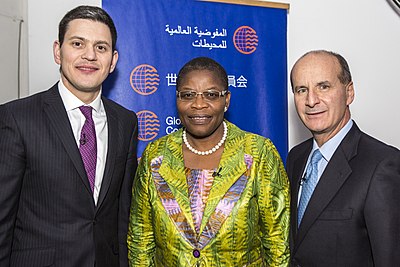
Fishery can mean either the enterprise of raising or harvesting fish and other aquatic life or, more commonly, the site where such enterprise takes place. Commercial fisheries include wild fisheries and fish farms, both in freshwater waterbodies and the oceans. About 500 million people worldwide are economically dependent on fisheries. 171 million tonnes of fish were produced in 2016, but overfishing is an increasing problem, causing declines in some populations.

A conventional idea of a sustainable fishery is that it is one that is harvested at a sustainable rate, where the fish population does not decline over time because of fishing practices. Sustainability in fisheries combines theoretical disciplines, such as the population dynamics of fisheries, with practical strategies, such as avoiding overfishing through techniques such as individual fishing quotas, curtailing destructive and illegal fishing practices by lobbying for appropriate law and policy, setting up protected areas, restoring collapsed fisheries, incorporating all externalities involved in harvesting marine ecosystems into fishery economics, educating stakeholders and the wider public, and developing independent certification programs.
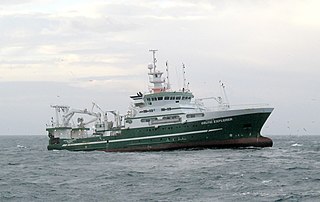
Bottom trawling is trawling along the seafloor. It is also referred to as "dragging". The scientific community divides bottom trawling into benthic trawling and demersal trawling. Benthic trawling is towing a net at the very bottom of the ocean and demersal trawling is towing a net just above the benthic zone. Bottom trawling can be contrasted with midwater trawling, where a net is towed higher in the water column. Midwater trawling catches pelagic fish such as anchovies and mackerel, whereas bottom trawling targets both bottom-living fish (groundfish) and semi-pelagic species such as cod, squid, shrimp, and rockfish.
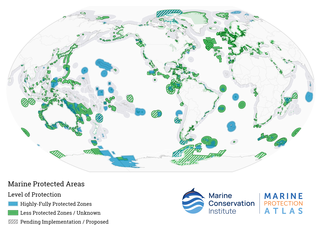
Marine protected areas (MPAs) are protected areas of the world's seas, oceans, estuaries or in the US, the Great Lakes. These marine areas can come in many forms ranging from wildlife refuges to research facilities. MPAs restrict human activity for a conservation purpose, typically to protect natural or cultural resources. Such marine resources are protected by local, state, territorial, native, regional, national, or international authorities and differ substantially among and between nations. This variation includes different limitations on development, fishing practices, fishing seasons and catch limits, moorings and bans on removing or disrupting marine life. MPAs can provide economic benefits by supporting the fishing industry through the revival of fish stocks, as well as job creation and other market benefits via ecotourism. The value of MPA to mobile species is unknown.
The International Commission for the Conservation of Atlantic Tunas (ICCAT) is a tuna regional fishery management organisation, responsible for the management and conservation of tuna and tuna-like species in the Atlantic Ocean and adjacent seas. The organization was established in 1966, at a conference in Rio de Janeiro, Brazil, and operates in English, French and Spanish. The organisation has been strongly criticised by scientists for its repeated failure to conserve the sustainability of the tuna fishery by consistently supporting over-fishing – an internal review branded ICCAT's policies on the eastern Atlantic bluefin tuna fishery a "travesty of fisheries management", and an "international disgrace". Conservationists often refer to ICCAT as "The International Conspiracy to Catch All Tuna".

Drift netting is a fishing technique where nets, called drift nets, hang vertically in the water column without being anchored to the bottom. The nets are kept vertical in the water by floats attached to a rope along the top of the net and weights attached to another rope along the bottom of the net. Drift nets generally rely on the entanglement properties of loosely affixed netting. Folds of loose netting, much like a window drapery, snag on a fish's tail and fins and wrap the fish up in loose netting as it struggles to escape. However, the nets can also function as gill nets if fish are captured when their gills get stuck in the net. The size of the mesh varies depending on the fish being targeted. These nets usually target schools of pelagic fish.

Marine ecosystems are the largest of Earth's aquatic ecosystems and exist in waters that have a high salt content. These systems contrast with freshwater ecosystems, which have a lower salt content. Marine waters cover more than 70% of the surface of the Earth and account for more than 97% of Earth's water supply and 90% of habitable space on Earth. Seawater has an average salinity of 35 parts per thousand of water. Actual salinity varies among different marine ecosystems. Marine ecosystems can be divided into many zones depending upon water depth and shoreline features. The oceanic zone is the vast open part of the ocean where animals such as whales, sharks, and tuna live. The benthic zone consists of substrates below water where many invertebrates live. The intertidal zone is the area between high and low tides. Other near-shore (neritic) zones can include mudflats, seagrass meadows, mangroves, rocky intertidal systems, salt marshes, coral reefs, lagoons. In the deep water, hydrothermal vents may occur where chemosynthetic sulfur bacteria form the base of the food web.
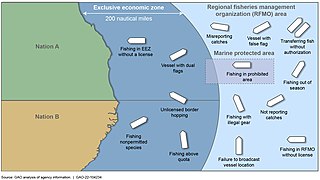
Illegal, unreported and unregulated fishing (IUU) is an issue around the world. Fishing industry observers believe IUU occurs in most fisheries, and accounts for up to 30% of total catches in some important fisheries.
Oceana, inc. is a 501(c)(3) nonprofit ocean conservation organization focused on influencing specific policy decisions on the national level to preserve and restore the world's oceans. It is headquartered in Washington, D.C., with offices in Juneau, Monterey, Fort Lauderdale, New York, Portland, Toronto, Mexico City, Madrid, Brussels, Copenhagen, Geneva, London, Manila, Belmopan, Brasilia, Santiago, and Lima, and it is the largest international advocacy group dedicated entirely to ocean conservation.

Marine conservation activism is the efforts of non-governmental organizations and individuals to bring about social and political change in the area of marine conservation. Marine conservation is properly conceived as a set of management strategies for the protection and preservation of ecosystems in oceans and seas. Activists raise public awareness and support for conservation, while pushing governments and corporations to practice sound ocean management, create conservation policy, and enforce existing laws and policy through effective regulation. There are many different kinds of organizations and agencies that work toward these common goals. They all are a part of the growing movement that is ocean conservation. These organizations fight for many causes including stopping pollution, overfishing, whaling and by-catching, and supporting marine protected areas.
The Joint Ocean Commission Initiative is a bipartisan, collaborative group in the United States that aims to "accelerate the pace of change that results in meaningful ocean policy reform." The Joint Initiative was established by the members of two major U.S.-based oceans commissions: the Pew Oceans Commission and the United States Commission on Ocean Policy. It was originally co-chaired by former White House Chief of Staff Leon Panetta and former Chief of Naval Operations Admiral James D. Watkins, chairs of the Pew and U.S. Ocean Commissions, respectively. Currently, the Joint Initiative is led by a Leadership Council, which is co-chaired by Christine Todd Whitman, former EPA Administrator under President George W. Bush and former governor of New Jersey, and Norman Y. Mineta, Secretary of Commerce under President Bill Clinton and Secretary of Transportation under President George W. Bush.
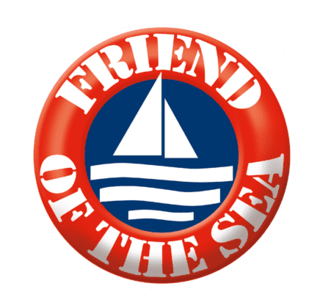
Friend of the Sea is a project of the World Sustainability Organization for the certification and promotion of seafood from sustainable fisheries and sustainable aquaculture. It is the only certification scheme which, with the same logo, certifies both wild and farmed seafood.

China has one-fifth of the world's population and accounts for one-third of the world's reported fish production as well as two-thirds of the world's reported aquaculture production. It is also a major importer of seafood and the country's seafood market is estimated to grow to a market size worth US$53.5 Billion by 2027.
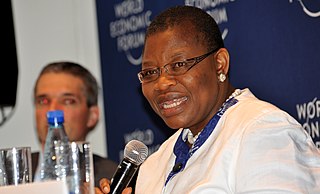
Obiageli "Oby" Ezekwesili is an economic policy expert, an advocate for transparency, accountability, good governance and human capital development, a humanitarian and an activist. She is a former vice president for the World Bank, co-founder and founding director of Transparency International, co-founder of the #BringBackOurGirls movement and has served twice as federal Minister in Nigeria. She is also the founder of #FixPolitics Initiative, a research-based citizen-led initiative, the School of Politics Policy and Governance (SPPG), and Human Capital Africa.

The Western and Central Pacific Fisheries Commission (WCPFC) is a regional fisheries management organisation established to conserve and manage tuna and other highly migratory fish stocks across the western and central areas of the Pacific Ocean. Its full name is Commission for the Conservation and Management of Highly Migratory Fish Stocks in the Western and Central Pacific Ocean. It commenced operations in late 2005, and its secretariat is based in Pohnpei, in the northern Pacific state of the Federated States of Micronesia.

In 1992, Northern Cod populations fell to 1% of historical levels, due in large part to decades of overfishing. The Canadian Federal Minister of Fisheries and Oceans, John Crosbie, declared a moratorium on the Northern Cod fishery, which for the preceding 500 years had primarily shaped the lives and communities of Canada's eastern coast. A significant factor contributing to the depletion of the cod stocks off Newfoundland's shores was the introduction of equipment and technology that increased landed fish volume. From the 1950s onwards, new technology allowed fishers to trawl a larger area, fish more in-depth, and for a longer time, with the catches peaking in the 1970s and 1980s. Cod stocks were depleted at a faster rate than could be replenished.

A shark sanctuary is an area that forbids commercial fishing operations from targeting and retaining caught sharks, including their fins. The first shark sanctuary was created by Palau in 2009. It was followed by Maldives, Honduras, The Bahamas and Tokelau.
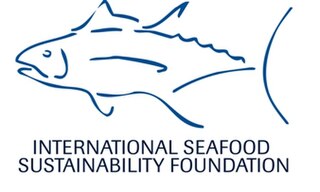
International Seafood Sustainability Foundation (ISSF) was formed in 2009 as a global, non-profit partnership among the tuna industry, scientists and World Wide Fund for Nature. The multistakeholder group states its mission is "to undertake science-based initiatives for the long-term conservation and sustainable use of tuna stocks, reducing bycatch and promoting ecosystem health". Regional Fisheries Management Organizations (RFMOs) are primarily responsible for managing the world's tuna stocks—skipjack, yellowfin and albacore tuna, the species most commonly processed for canned and shelf-stable tuna products, but their parliamentary procedures too often allow the short-term economic and political interests of nations to prevent sustainable measures from being adopted. ISSF works to ensure that effective international management practices are in place to maintain the health of all the tuna stocks.
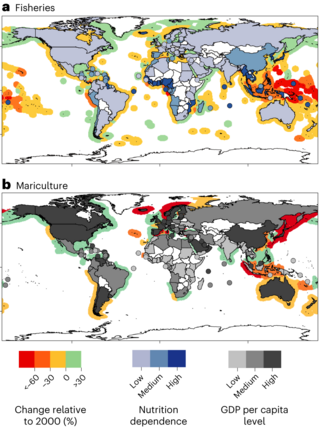
Fisheries are affected by climate change in many ways: marine aquatic ecosystems are being affected by rising ocean temperatures, ocean acidification and ocean deoxygenation, while freshwater ecosystems are being impacted by changes in water temperature, water flow, and fish habitat loss. These effects vary in the context of each fishery. Climate change is modifying fish distributions and the productivity of marine and freshwater species. Climate change is expected to lead to significant changes in the availability and trade of fish products. The geopolitical and economic consequences will be significant, especially for the countries most dependent on the sector. The biggest decreases in maximum catch potential can be expected in the tropics, mostly in the South Pacific regions.
High seas fisheries management refers to the governance and regulation of fishing activities in areas beyond national jurisdiction, often referred to as the 'high seas'.1 The 1982 United Nations Convention on the Law of the Sea (UNCLOS) and the 1995 United Nations Fish Stock Agreement (UNFSA) provide the international legal framework for the regulation of fishing activities in areas beyond national jurisdiction. The United Nations Fish Stock Agreement delegates responsibility for conservation and management of fish stocks to regional fisheries management organizations (RFMOs) each governing a geographical area of the high seas.

